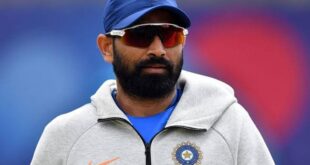By Abdul Rashid Agwan,
Just a day before the death of former chief minister of Delhi, Madanlal Khurrana, on 27th October this year, we happened to discuss on a dining table of a marriage feast about his pernicious attempt in early 1993 for disturbing communal harmony of the Okhla area for certain political gains.
A research associate of the Department of Sociology, Jamia Millia Islamia, and myself were in conversation and by chance we recalled the vital role of Professor Tariq Aziz of the department in preventing Okhla from falling in an uncalled for communal frenzy 25 years back. At that time, I was working as the Director of Institute of Objective Studies and, along with many leading activists, assiduously worked for bargaining peace in Jamia Nagar.
In the aftermath of the demolition of Babri Masjid, the majority of Okhlaites were in shock like many people in the country. The announcement of Khurrana on 21 January 1993, one and half months after the demolition of Babri Masjid, to forcefully remove the so-called “Bangladeshis” of Okhla the next month and help settle in their homes “Indian” people from Jhuggis of Nehru Place and Govindpuri, added awe in that shock and thousands of local people temporarily fled the area for some safer places to wait and watch the developments.
In such a situation, many groups and individuals worked hard to save Okhla from a communal crisis. I also closely coordinated with them in the rescue operation.
We had four weeks to do or die.
Dr Tariq Aziz’s role in activating Sadbhwana Mission, led by Professor VK Tripathi of IIT-Delhi, in Okhla area was very critical. The mission held meetings of cross sections of local people generally at the house of Kishanpal ji of Okhla Village. In those meetings, police was requested to identify ‘Bangladeshi’ families living in Okhla area if any and also to deport them if possible. Volunteer support was offered for this purpose by the leading activists. This ultimately led to a public statement of the erstwhile Police Commissioner of Delhi, Mukund Bihari Kaushal, that police had surveyed the locality and found no Bangladeshi living in the Jamia Nagar area. This statement was a great moral boost for our fight back to the communal onslaught.
I discussed with the then secretary of Milli Council Zakir Nagar, Musharraf Hussain, to rope in Comrade Amiruddin to work among people of JJ colonies of Nehru Place and Govindpuri through CPI workforce for discouraging them to become part of the communal trap. We collected some amount, printed a pamphlet for mass education and engaged him in the scheme which he keenly participated in. Moreover, we used our contacts with the JNU students to volunteer for this purpose, who worked in those colonies for many days.
On my request, late Shahab Azmi played a vital role in lining up Pandits and other sections of Jullena in opposing the communal design of the then BJP state president.
Other measures included educating Jamia hostelers not to become agitated on any untoward situation but to deal with it in a dispassionate manner and the formation of vigil groups to prevent any harm to members of other communities living in a Muslim concentration area. We also met Hindu residents of Okhla Village, who started shifting to other places apprehending a grave conflict, and assured them safety and security in case of any need.
The D-day came on 22 February and most people in the Okhla and Kalkaji areas were terribly anxious about its outcome.
Late Madanlal Khurrana and his team assembled at some point between Nehru Place and Modi Mill. The crowd was very thin. In spite of almost a month long Jagaran and distribution of free foods in the nearby JJ colonies by the communal outfits, their residents did not come out to join the BJP rally. They feared that their hutmets might be put to arson for clearing the land for tall buildings, like in Mumbai a few months back.
Seeing a lukewarm local response, the rally leaders made hectic arrangement of 2-3 truckloads of people from other parts of Delhi.
Many residents of Jullena got assembled at the railway crossing south of Okhla Railway Station, where the present flyover exists, to prevent the rally pass beyond the crossing.
Around noon, the rally of a few hundred people began its march towards Okhla. However, after moving a few meters from the assembly point, the rally was declared accomplished, saying that it was only “symbolic” in nature.
Thousands of local people took a sigh of relief on hearing that the BJP rally got concluded much before the railway crossing and was proved almost a fiasco.
However, many activists working against the rally were apprehending something untoward in next few days, for creating any communal flare up. And, their fear was proved right.
Within 2-3 days, a truck full of youths raising Vandemataram slogans haulted opposite the SRK Hostel. The Jamia students gathered around it. They ultimately made the hooligans wisely arrested by police. Those youths were from Kirlokari Village of the Ashram area.
The vigil teams also caught some ‘drunkards’ in Abul Fazl Enclave during late night, whom the teams feared would have come from outside the locality to put to arson Jhuggis existing on the Nalla road and Yamuna Bank, inhabitated by some Hindu families. They were handed over to police for due action.
By the grace of Almighty, the life in Okhla soon became normal. However, the local people had preserved in their memory, Khurrana as an aggressor on peace and harmony of the area which got sustained here since long. Khurrana never came to Okhla after that debacle, even not during his three year long tenure as the chief minister of Delhi.
 Al Haqeeqa
Al Haqeeqa





